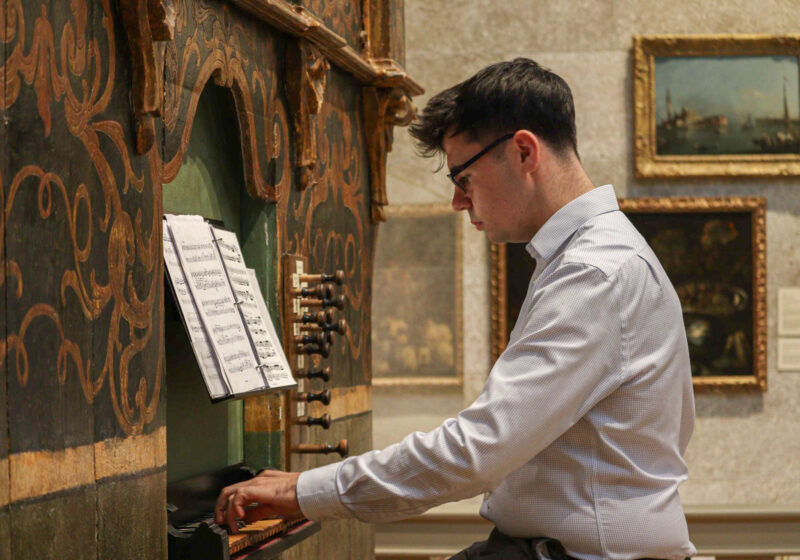The efforts of UR students to find a solution to a common environmental obstacle were rewarded when their project, UR Biodiesel, received the Excellence in Innovations for Sustainability Award by the Association of College Unions International (ACUI).
UR Biodiesel is a project created by undergraduate students to turn extra fryer oil from dining service centers into biodiesel to fuel a campus shuttle bus. The award was presented to UR on March 2, at the ACUI’s 2010 Annual Conference in New York City.
According to the ACUI, the Excellence in Innovations for Sustainability Award is given to the student group that has the most groundbreaking and environmentally sustainable methods of solving an environmental problem. In addition, the ACUI requires that the winner of this award possess the capability to impact and positively influence the surrounding community with a project.
‘I was honored to win this award,” Chair of UR Biodiesel, member of Engineers for a Sustainable World and freshman Ellen Sadri said. ‘The project that won [last year] was the student union of [the University of Vermont], which was built to lead standards, so it is flattering to be compared to them.”
In the fall of 2006, alumni Chris Babcock, David Borrelli, Dan Fink and current Students’ Association President and senior Eric Weissmann founded the project. They submitted their business proposal to Rochester’s Charles and Janet Forbes Entrepreneurial Competition, which included a way to save UR money by turning excess vegetable oil from the River Campus dining centers into useable biodiesel fuel.
Before UR Biodiesel, the University was paying to have waste from the dining halls removed.
Their proposal won second place in the competition, which prompted Babcock, Borrelli, Fink and Weissmann to continue on with UR Biodiesel.
‘The most important goal we had was to make sure that UR Biodiesel did not end with our graduation,” Weissmann said.
Over the course of the last four years, this goal has been realized with a business proposal that has transformed into a fully functional operation. UR Biodiesel is now situated in a lab that makes 30 gallons of biodiesel fuel each week.
The fuel used by the buses is mixed with diesel at a ratio of 80 percent diesel to 20 percent biodiesel.
Not only is this fuel used to power a campus shuttle, but two University contractors, the AEY and P’J construction companies, also use the biodiesel to fuel their on-site equipment. In addition, the construction on Library Road last week used 50 gallons of UR’s biodiesel fuel.
‘UR Biodiesel is one of the few groups that connects the students, Facilities, Transportation and faculty,” Sadri said. ‘This has taught the separate groups to work together toward one goal, which in turn improves the health of our school.”
In addition, UR Biodiesel encompasses an important academic component. More specifically, Ben Ebenhack, who is a senior lecturer in the Chemical Engineering department and the project’s faculty adviser, allows his students to participate in experiments in his lab to test the science behind the biodiesel project.
All the progress that UR Biodiesel has made thus far motivates its founding and current members to continue to improve and push it toward becoming a well-established project at UR.
‘I can only hope that continuing leadership decides on a direction for the project to take [and] that they establish goals of their own,” Weissmann said.
The current UR Biodiesel members have echoed Weissmann’s wishes.
‘I am hoping to find more sponsors to extend the influence of UR Biodiesel and to make us more well-known [in the community],” Sadri said. ‘In future years we are hoping to start a second lab producing ethanol fuel. We are actually making a difference with every gallon we produce.”
Berkowitz is a member of
the class of 2012.




